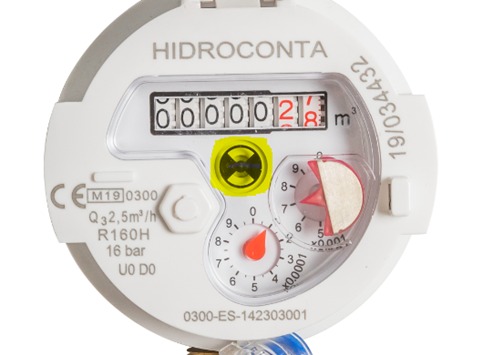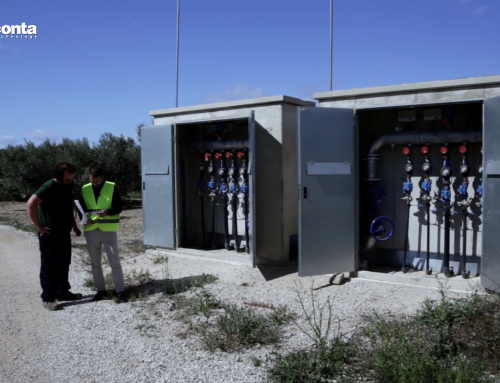The water meter is an important tool for measuring water consumption in a house or building. It is crucial to regularly check the meter to detect water leaks, as these can increase the water bill and cause property damage.
In this article, we will discover how to check the water meter to detect leaks.
Checking the water meter to avoid leaks
1. locate the water meter
First, find the location of the water meter. In most homes, the water meter is in the basement or garage.
2. read the meter
Once you have found the meter, note the number displayed on the screen. This number indicates the amount of water used since the last reading.
3. ensure no water usage
Before checking the meter, make sure no water is being used on the property. Close all water taps and ensure no one is showering, washing dishes, or doing any other activity that requires water.
4. observe the meter
After ensuring no water is being used, observe the meter. In the center of the dial is the rotating star (see image). This element is the most precise way to know if water is passing through the meter. If the star is rotating, there is likely a leak somewhere on the property.
5. take a reading and wait
Another way to detect a leak is to take a reading of the water meter and then wait a few minutes without using any water. If the meter continues to count liters, there is likely a leak.

What to do if you detect a water leak
If you suspect a water leak, it is important to quickly investigate to find the source of the problem:
1. Check faucets and pipes
Start by checking the property’s faucets and pipes. Ensure all faucets are closed and look for drips or splashes from the pipes.
2. Inspect hidden areas
If you do not find any leaks in these areas, the leak might be in the pipes under the floor or in the walls.
3. Maintain drainage and sewer systems
Besides regularly checking the water meter and looking for leaks in pipes and faucets, it is also important to maintain the property’s drainage and sewer systems. Blockages in these systems can cause water leaks and pipe damage. Regularly clean the pipes and drains and keep the sewer systems clear.
4. Repair leaks quickly
If you detect a water leak on your property, it is important to act quickly to repair it. Leaks can cause property damage, increase the water bill, and contribute to environmental problems and water shortages. If you are not comfortable repairing the leak yourself, hire a professional plumber to do it for you.
Monitor meter movements to prevent unwanted leaks
In summary, regularly checking the water meter is an important way to detect water leaks on a property. Make sure to close all water taps before checking the meter and look for changes in the displayed number.
If you detect a water leak, investigate quickly to find the source of the problem and repair the leak as soon as possible. In addition to checking the water meter, it is important to maintain the property’s drainage and sewer systems to prevent water leaks and pipe damage.
Extra tips to prevent water leaks and optimize your consumption
Checking the water meter is only the first step in keeping your usage under control and avoiding surprises on your bill. You can also adopt certain habits and preventive measures to detect leaks early and reduce unnecessary water waste:
-
Install early detection devices: There are smart sensors that send alerts to your phone if they detect continuous water flow outside of normal patterns.
-
Perform regular inspections in critical areas: Check toilets, boilers, water heaters, and appliances connected to the water supply, as these are common points for unnoticed leaks.
-
Check seals and connections: Even a small drip from a joint or valve can waste liters of water each month.
-
Monitor water pressure changes: A sudden drop in pressure without any apparent reason can be a sign of a hidden leak.
-
Take advantage of vacation periods: Before leaving, close the main water valve, and upon returning, check if the meter has moved. If it has, there’s likely a leak.
Bonus benefit: Regular monitoring not only prevents damage and high bills, but also contributes to water conservation, helping preserve this vital resource and reduce your water footprint.
With preventive maintenance and active meter monitoring, you can act quickly on any leak and extend the lifespan of your plumbing system.



